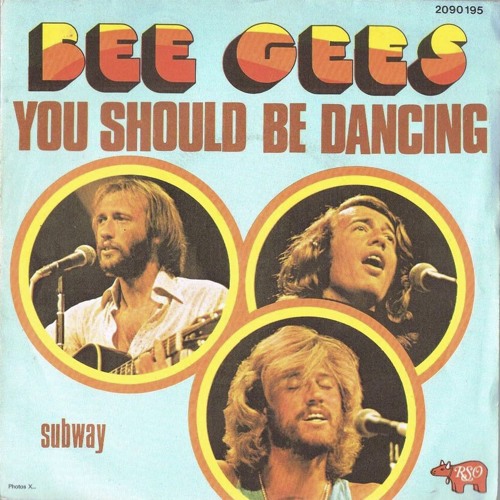Introduction:
Good evening, esteemed readers and fellow enthusiasts of the sonic arts. Tonight, we embark on a journey back to a pivotal moment in music history, a period of transition and explosive creativity that forever altered the landscape of popular sound. We speak, of course, of the mid-1970s, a time when the echoes of folk and rock began to intermingle with the pulsating rhythms of a burgeoning phenomenon. And at the very heart of this vibrant transformation stood three brothers, their voices harmonizing with an almost ethereal quality, who would come to define an entire era: the Bee Gees.
Our focus this evening turns to a particular track, one that not only encapsulated the spirit of its time but also served as a clarion call for the dance floor: “You Should Be Dancing”. Released in 1976, this single was more than just a song; it was a cultural touchstone, a powerful affirmation of movement and communal joy that swept across the globe. For many, it represented their first genuine encounter with the irresistible allure of disco, a genre that, for all its subsequent evolutions and criticisms, possessed an undeniable energy and a profound capacity to unite people in shared experience.
To truly appreciate the impact of “You Should Be Dancing”, we must first consider the trajectory of the Bee Gees themselves. Prior to this landmark recording, the Gibb brothers – Barry, Robin, and Maurice – had already established a formidable reputation for their songwriting prowess and their distinctive vocal arrangements. Their early work, marked by lush orchestrations and poignant ballads, showcased a remarkable melodic sensibility and a lyrical depth that resonated with a broad audience. However, as the musical tides began to shift, so too did the Bee Gees’ artistic direction. They possessed an innate understanding of popular trends, coupled with an adventurous spirit that allowed them to embrace new sounds without sacrificing their core identity. This adaptability, this willingness to evolve, proved to be their greatest strength.
The genesis of “You Should Be Dancing” is fascinating, reflecting the band’s keen awareness of the nascent disco scene. It wasn’t merely an attempt to jump on a bandwagon; rather, it was a genuine embrace of the genre’s infectious rhythm and its inherent optimism. The song’s driving bassline, a propulsive force that immediately commands attention, laid the foundation for its undeniable groove. This was expertly complemented by the shimmering hi-hats and a tight, syncopated drum beat, all working in concert to create a tapestry of sound designed for kinetic expression.
But it was Barry Gibb’s falsetto, soaring effortlessly above the instrumentation, that truly elevated “You Should Be Dancing” to an iconic status. This vocal register, which would become a signature element of their later work, added a layer of exhilaration and a sense of boundless freedom to the track. It was a voice that seemed to defy gravity, inviting listeners to shed their inhibitions and surrender to the rhythm. The backing vocals, interwoven with precision and warmth, provided a rich counterpoint, showcasing the brothers’ celebrated harmonic blend.
Beyond its musical components, “You Should Be Dancing” held a deeper significance. It was a song that celebrated the simple, unadulterated pleasure of movement, of coming together in a shared space and losing oneself in the moment. In a world often fraught with complexities, the song offered a much-needed escape, a vibrant invitation to release tension and embrace joy. It wasn’t about grand declarations or profound philosophical insights; it was about the primal, universal human desire to move, to connect, and to feel alive. And in this, the Bee Gees succeeded magnificently, crafting an anthem that transcended generations and continues to ignite dance floors to this day. Its enduring appeal lies not only in its undeniable catchiness but also in its ability to evoke a sense of pure, unbridled euphoria, a feeling that remains as potent now as it was nearly five decades ago.
Video:
